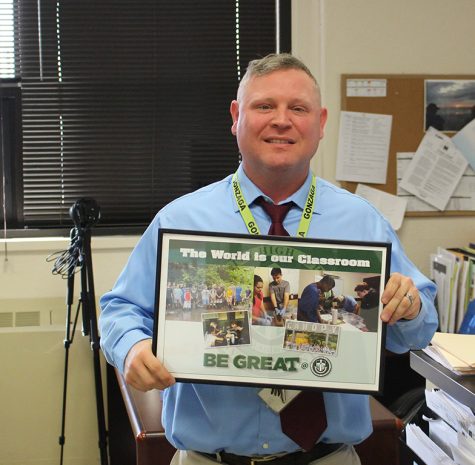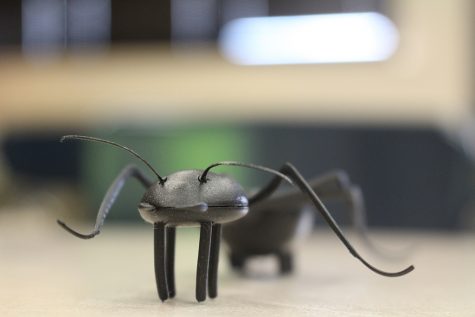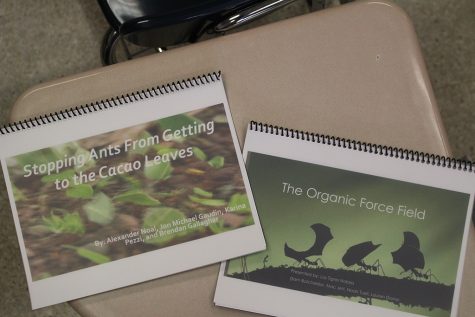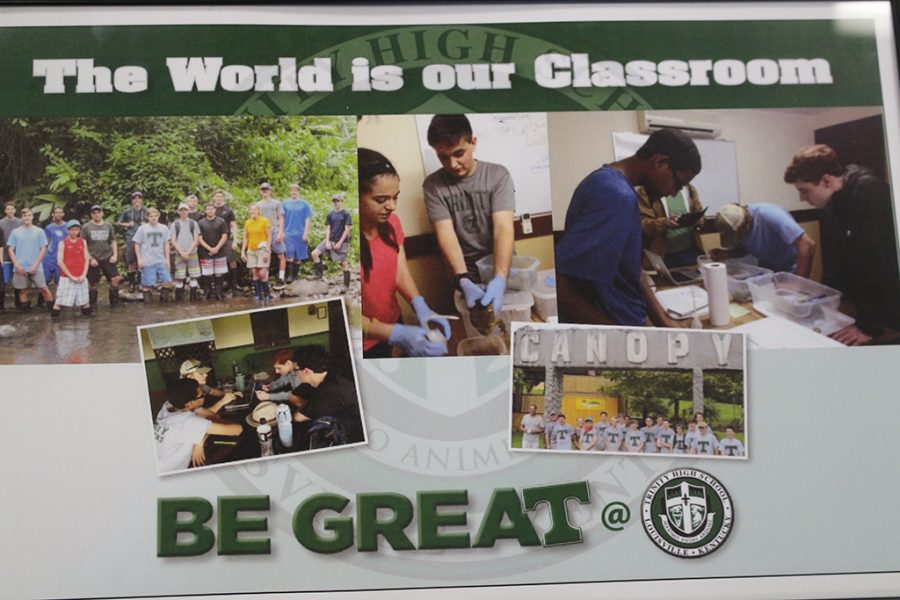Rocks to Spend Summer Immersed in ‘Paradise’
Trinity students will travel to the Galapagos Islands and Costa Rica this summer.
March 27, 2018

Trinity teacher Mr. Patrick Heintz
Iguanas that dive 30 meters deep in the ocean. Leaf-cutter ants that cultivate their own food. Tortoises that outlive humans. Trinity students will encounter all of these when they travel to tropical destinations in June to witness biological wonders, conduct important research, and immerse themselves in unfamiliar cultures.
“Call it bucket list for me!” Trinity teacher Mr. Michael Budniak said of an upcoming trip to the Galapagos Islands.
Budniak and fellow teacher Mr. Carlos Cuenca will lead a group of 50, made up of Trinity students, parents, and teachers, to the tropical paradise in June. Budniak said the parents are just as excited and enthusiastic as the students.
Budniak said going to the Galapagos has been a dream of his, but last year it came true after talking with Cuenca about putting a trip together. Cuenca is from Quito, Ecuador, where the group will be spending three days.
The two finally found an affordable option for the tour, which had been the biggest deterrent. The tour includes six of the major islands and will encounter a variety of environments and animals.  photo by Grant Brunstetter
photo by Grant Brunstetter
Budniak said he is most looking forward to seeing giant tortoises and scuba diving with black iguanas.
The group will experience the area’s culture and explore the tropical environment of the equator, which includes active volcanoes. Budniak said if the trip goes well, he hopes to run it again about every three to four years, mixing in service trips like the one to Nicaragua last spring, in the years between.
Prior to the Galapagos trip, a group of Trinity students heads on May 29 to Colonia Libertad, Costa Rica. The trip, led by Trinity teacher Mr. Patrick Heintz, is run through a program called Seeds of Change.
Heintz said the program has a goal of inspiring students to consider science as a career.
According to Heintz, who has coordinated the trip the past several years, students spend much of the school year working in advising and after school to prepare.  photo by Grant Brunstetter
photo by Grant Brunstetter
In the Seeds of Change program before the trip, the students watch different videos, Skype with professors from the University of Wisconsin, who play a vital role in the scientific research, and learn about the leaf-cutter ants and the other animals, such as frogs or snakes, that may be possible topics for research.
The 14 students — two of whom are in a more advanced second-year program — will experience practical, real science.
Trinity junior Jon Gaudin, who went on the trip last year and is participating in the second-year program this time around, said, “There is no hand holding or spoon feeding.”
Gaudin said students will jump right in once they arrive. The students work to solve a real-word problem that his hurting farmers in Costa Rica. The group works at an active chocolate farm named Finca La Anita, attempting to kill problematic leaf-cutter ants that destroy farmers’ trees.
Once in Costa Rica, students can produce their own research project on the leaf-cutter ants or other animals found in the area.
“Each trip is different,” said Heintz, who has led trips to Costa Rica to research and study the behavior of sea turtles as they lay their eggs.
The trip is not all work, though. Students will spend time venturing through cloud and dry forests, as well as in both hot and cold springs and at the beach.
Gaudin is looking forward to returning to Costa Rica. He said, “There is not a single square inch that isn’t paradise.”


